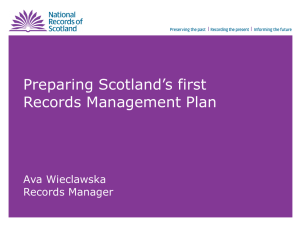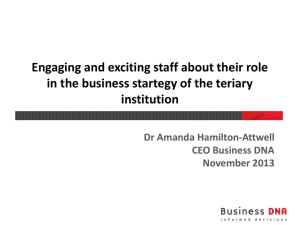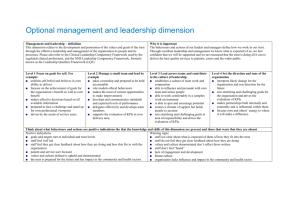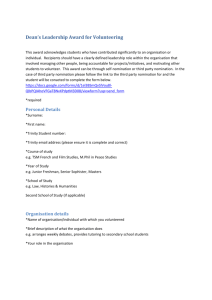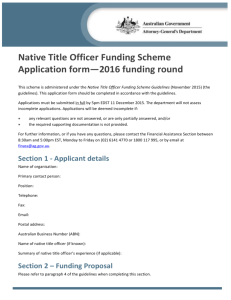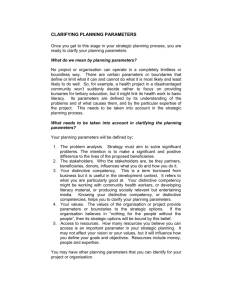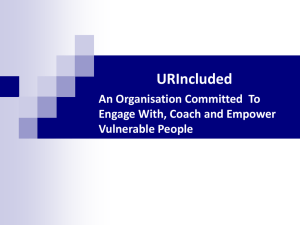Report Best Practice
advertisement
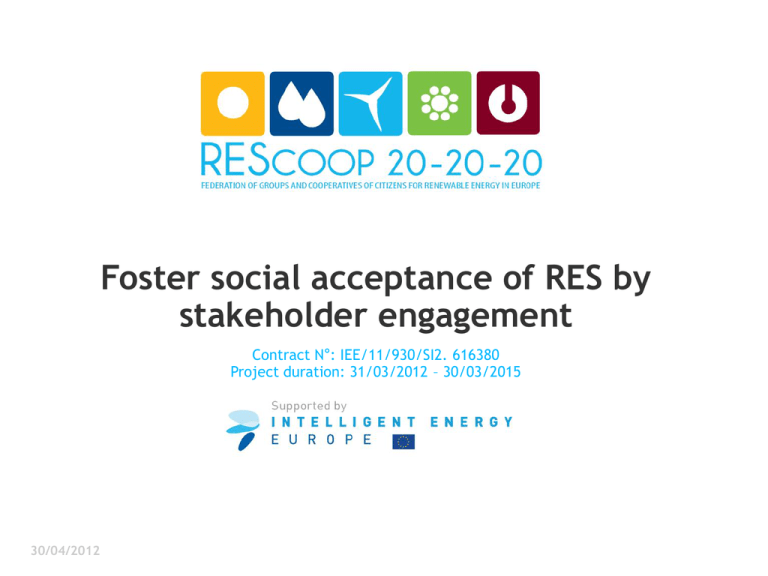
Foster social acceptance of RES by stakeholder engagement Contract N°: IEE/11/930/SI2. 616380 Project duration: 31/03/2012 – 30/03/2015 30/04/2012 Who is who? Siward Zomer - Birmingham, University of Birmingham, master Social and Political Theory - MA thesis: “Connecting the Sun: A critical analysis of Karl Marx and Herbert Marcuse’s theories of technology through a case study on photovoltaic technology” (2009) - Active in renewable energy sector since 2010 - Research on the social and political aspects in the development of windpower projects. - Board Member: Coöperatieve vereniging de Windvogel - WP2 Coordinator ODE_NL for REScoop 20-20-20 What is a REScoop: REScoop is short for Renewable Energy Sources COOPerative. A REScoop is a group of citizens that cooperate in the field of renewable energy, developing new production, selling renewable energy or providing services to new initiatives. Best Practice report REScoop 20-20-20 15 best practices 5 criteria • Speed in the authorisation process • Involvement of stakeholders and alignment of their interest • Technical and economic sustainability of the project • Financing schemes and participation of citizens as shareholders • Grid connection and sale of energy Oktober 2012 adding 15 more best practices 4 criteria: Heatproduction, Energy saving, cooperation between cooperatives, social engagement. Organisation Best Practice: Transparency To include your members and foster their social power it is important your members are able to trust, that means know and understand, the organisation, its goals and methods. Best Practice: Start small to create fast successes with minimal complexity By starting small you can quickly create projects that with their success create media attention and goodwill in the community. Best Practice: Develop the REScoop with innovative projects Another way of growing the organisation is to participate in innovation projects. A REScoop has an important asset, its member base. Financial Organisation Best Practice: use the RESCoop strength of low organisational cost and resilience. One strength of the REScoop model comes from the fact that they start small and tend to have a low cost base for project development. Best Practice: Provide for flexibility – pay variable dividends. The members decide on the dividends on shares and on the interest payments on loans. Best Practice: REScoops can tap into other motives for investment. For many REScoop members a return on investment is not the only, often not even the main reason why they participate in the REScoop Relations with stakeholders Best Practice: Members as stakeholders The strength of the REScoop model is that any member can participate. Most citizens have a profession or are attached to other organisation Best Practice: Know your assets To communicate your assets effectively you need to have a clear vision of what they are. Best Practice: Get support of your local authorities Good collaboration with the local authorities speeds up the development process. As a REScoop you can offer your services to the local government. Best Practice: Contact other REScoops for ideas and learn from their experience As a start-up REScoop or a REScoop starting a new project it is not necessary to invent the wheel. Best Practice: Grid connection Best Practice: Smart grids REScoops have the demand side of the electricity market organised. This makes them an interesting partner for companies developing smart grids. Best Practice: Using the produced energy. Many REScoops that produce energy feel strongly about the energy produced, they see that as ‘their’ energy. This preference of the co-operative members to consume selfproduced electricity has triggered in several cases interesting technical, commercial and social innovations. Best Practice: How to sell energy Most REScoops not only want to produce but also sell and use energy in an ecological way. This affects how they sell energy. The business case is not based on growth Opportunities REScoops create community involvement in RESenergy and therefore accelerate projects. The REScoops have the potential to increase social acceptance of RESenergy. The members of the REScoop ‘sell’ the benefits of RESenergy’ in informal local networks, as in a chat with neighbours, on birthday parties, via school projects, etc etc. Large Companies are discovering the value of REScoops. - REScoops bring a new phenomenon to the energy market, the prosumer, a consumer, responsible not only for their consumption of energy but also assuming the responsibility for producing part of it. REScoops and their prosumer members need many services from players on the energy market like administration, balancing of energy, invoicing, smartgrids etc. Excellent, low cost demand driven innovation that could be better sold. In many REScoops we found enthusiastic and technically competent individuals started innovative REScoop projects. These were often driven by a specific wish of their members. Opportunities Growth and resilience of the REScoop movement. The low cost, volunteer based organisation makes them resilient enough to survive even unfavourable regulations or support systems. Their open and democratic structure creates an open-source learning model that should strengthen the movement over time, creating an internet-like growth model. Strengthening the community. By setting up REScoops, the community members realize a limited extra income. Probably more important is that they realize significant savings on energy cost as they get involved in the production and usage of their own energy. A third effect is that this also generates further economic activity in those areas. Local REScoops often use local businesses to help them set up and run their REScoop. Stimulating alternative business models Several REScoops have adapted their business model to better fit the needs of their members. Risks Bureaucracy Bureaucracy and regulation makes it hard to enter the energy market. Underestimation of citizens and REScoops There is still an overestimation of the capacities of companies compared to that of citizens. This influences policies and political attention. Differences in countries. There are many differences per country in the European energy market. This makes it hard for European REScoops to work together. Changing regulations and policies Large energy companies with a larger production from fossil energy sources are less vulnerable for changing policies on RESenergy. Windrush Private developers that claim land and push through authorization processes without due communication


